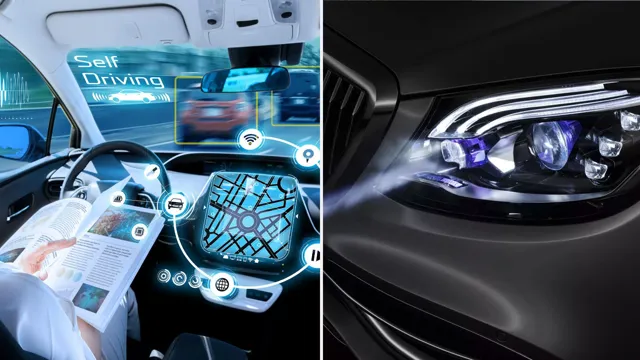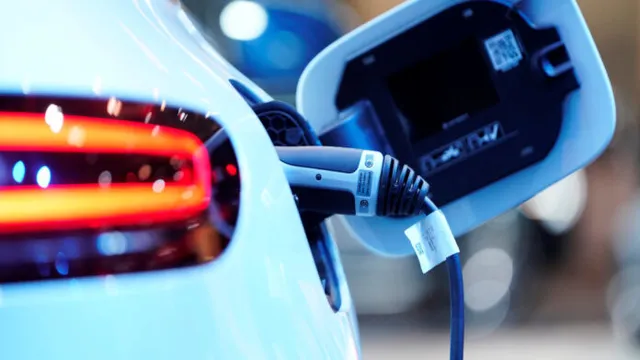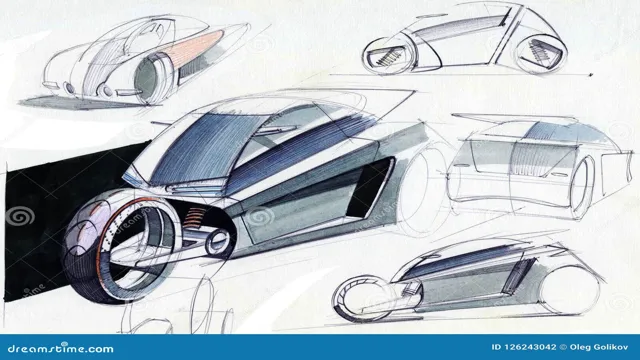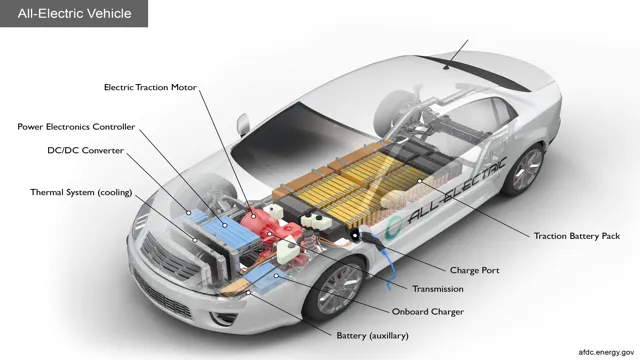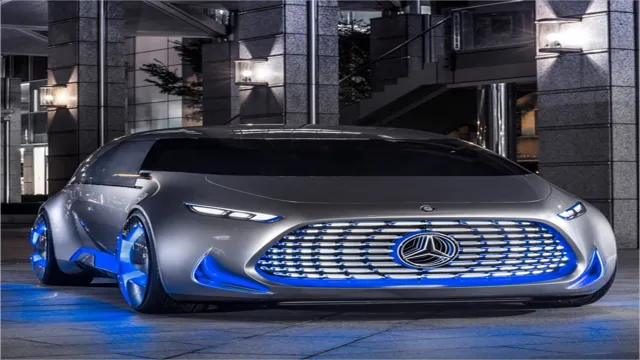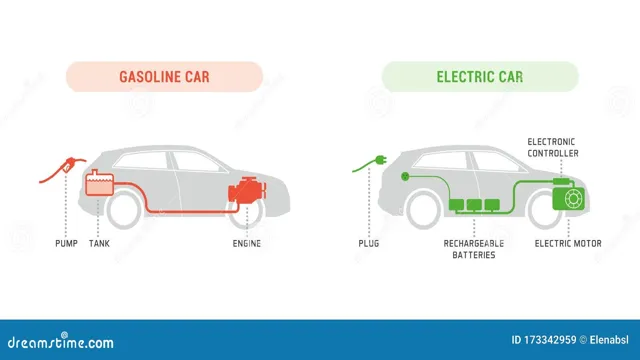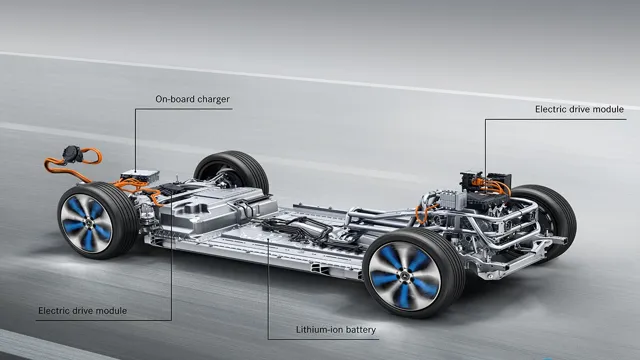Revolutionizing the Roads: Exploring the Electrifying Future of Transportation Technology
The future of electric cars is an exciting topic that has been generating a lot of buzz lately. With people becoming more environmentally conscious and the automotive industry constantly evolving, it’s no surprise that electric cars are becoming more popular. But what does the future look like for electric cars? Will they be the norm in a few years? What are the advancements we can expect in the coming years? To start, electric cars are no longer just for the wealthy.
With more models being introduced and prices becoming more affordable, the average consumer can now consider purchasing an electric car. The shift towards electric cars is happening much faster than predicted, and with advancements in battery technology, longer ranges and faster charging times will soon become commonplace. As more and more automakers pivot towards electric vehicles, the future of traditional gasoline vehicles may be in question.
In fact, governments around the world are beginning to implement regulations that could lead to fossil fuel vehicles being phased out sooner than anticipated. So what does this mean for the future of transportation? Well, it means we’ll be seeing cleaner, more energy-efficient vehicles on the roads. And as electric car technology continues to evolve, we’ll likely see more advancements such as self-driving capabilities, increased range, and faster charging times.
The possibilities are endless, but one thing is for sure: the future of electric cars is looking bright.
Advancements in Charging Technology
As electric cars become more popular, advancements in charging technology have become a crucial aspect of their future development. One promising technology that is gaining traction is wireless charging, which allows EV drivers to charge their vehicles without needing to plug them in. This technology uses electromagnetic induction to transfer energy wirelessly, eliminating the need for physical connections between the car and the charger.
It offers several benefits, including convenience, reduced wear and tear on the charging port, and improved accessibility for disabled people. Another promising technology is bidirectional charging, which enables EVs to transfer energy back to the grid when demand is high. This technology not only helps improve grid stability but also allows EV owners to earn money by selling energy back to the grid.
These advancements in charging technology give us a glimpse of what the future of electric cars has in store for us, and they are an enormous step towards making EVs more accessible and practical. As this technology continues to evolve, we can expect EVs to become even more widespread and integrated into our daily lives.
Rapid charging stations
Rapid charging stations have come a long way in recent years, with advancements in charging technology making it possible to recharge electric vehicles (EVs) in just minutes. This is a game-changer for EV owners, who no longer have to wait hours to top up their batteries. The latest rapid charging stations are capable of charging an EV up to 80% of its capacity in just 20-30 minutes.
These stations are equipped with high-powered chargers that can deliver up to 350 kW of power, allowing drivers to quickly and efficiently recharge their vehicles. With more and more rapid charging stations being built, it’s becoming easier and more convenient to own an EV. Plus, the latest models can even be integrated into renewable energy sources, such as solar power.
As we move towards a more sustainable future, rapid charging stations will play a crucial role in reducing our reliance on fossil fuels and making EVs a more practical option for everyone.
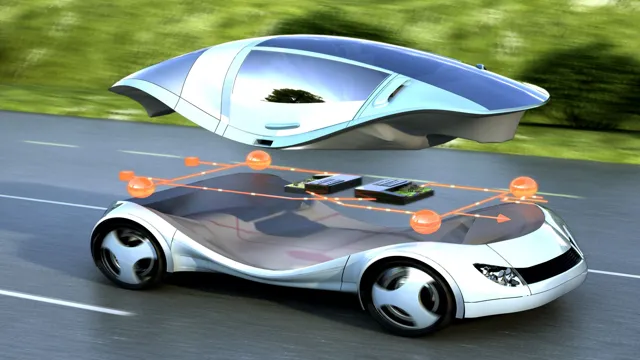
Wireless charging
Wireless charging has been around for a few years now, but it’s only recently that we’re seeing advancements in this technology. With wireless charging, you can simply place your device on a charging pad, and it will begin charging without any cords or cables. The technology uses magnetic resonance to transfer energy from the pad to your device, making it a convenient and hassle-free way to charge.
One of the recent advancements in wireless charging is the ability to charge multiple devices at once. This is particularly helpful for families or business settings where multiple devices need to be charged simultaneously. Another development is the increased charging speed.
Some wireless chargers are now capable of charging devices up to 50% faster than traditional wired chargers. This is a huge improvement and makes wireless charging an even more attractive option. With these advancements, wireless charging is becoming an increasingly popular option for people looking for a convenient and efficient way to charge their devices.
Improved Battery Technology
Electric cars are undoubtedly the future of the automotive industry, and one of the major challenges that car manufacturers face is developing an efficient and long-lasting battery. Having high-capacity batteries is crucial to the success of electric vehicle technology, and advancements in battery technology have made significant progress. Nowadays, electric cars can travel up to hundreds of miles without requiring a recharge – a distance that seemed impossible just a few years ago.
Improvements in battery capacity are essential to making electric cars more affordable, practical, and accessible to a wider audience. With this in mind, researchers are exploring new techniques to enhance battery performance that include using new materials, testing new chemistries, and developing innovative manufacturing processes. The electric cars future technology is highly dependent on the development of lithium-ion batteries that store more energy, charge faster, and last longer, enabling electric cars to have greater range and faster refueling times.
Increased range
Improved Battery Technology has significantly increased the range of electric vehicles, and it continues to do so. With advancements in lithium-ion batteries and other battery technologies, electric cars can now go further on a single charge than before. Thanks to the increased energy density of these batteries, vehicles like the Tesla Model S can travel up to 402 miles on a single charge.
This not only benefits the environment but also makes electric cars more practical for everyday use. Imagine being able to drive to work and back without worrying about whether your car has enough charge to make it home. Improved battery technology has made this a reality, and it paves the way for a future where electric cars are the norm rather than the exception.
As more and more carmakers embrace electric vehicles, battery technology will continue to improve, and we can expect to see even more impressive ranges in the years to come.
Reduced charging times
Improved Battery Technology has led to reduced charging times, making the charging process more convenient and efficient. As battery technology continues to evolve, longer-lasting and faster-charging batteries are becoming more widely available. The use of advanced materials such as graphene and silicon in battery manufacturing has contributed to this improvement.
Additionally, new charging technologies such as rapid charging and wireless charging have greatly reduced the time it takes to charge a battery. With these advancements, users can now charge their devices in a fraction of the time it used to take, saving them time and hassle. Plus, with the increased efficiency of charging, battery life is extended, reducing the need for frequent charging.
All in all, Improved Battery Technology has transformed the way we charge and use our devices, making our lives much easier and more convenient.
Autonomous Driving and AI
The future of electric cars technology is heavily intertwined with autonomous driving and AI. The advent of self-driving cars and the use of advanced artificial intelligence algorithms have paved the way for electric cars to become a viable alternative to traditional gasoline-powered vehicles. The benefits of electric cars are well documented, including lower emissions, reduced fuel costs, and a quieter ride, but the full potential of this technology can only be realized with the use of autonomous driving and AI.
The ability to autonomously navigate traffic, read road signs, and communicate with other vehicles is a crucial component of the technology that will help electric cars become more widespread. With the continued development of autonomous driving and AI, the future looks bright for electric cars, as they hold enormous potential to revolutionize how we get around and reduce our carbon footprint.
Self-driving capabilities
When we think of self-driving cars, most people think of futuristic science fiction movies. However, this technology has been rapidly advancing thanks to the power of artificial intelligence (AI). Autonomous driving and AI are tightly intertwined, with AI being the brains behind the operation.
Self-driving cars utilize various sensors, cameras, and mapping tools to gather data about the car’s surroundings and use that information to make driving decisions. AI algorithms analyze the data in real-time, allowing the car to navigate roads and situations without human intervention. This is where the burstiness of AI comes into play.
The car must be able to make split-second decisions to avoid potential collisions or obstacles. The technology used in self-driving cars is constantly learning and adapting, making it more effective every day. As this technology continues to advance, we can expect to see more widespread adoption of autonomous driving, which will revolutionize the automotive industry and how we commute.
Smart navigation
Smart navigation is an integral part of autonomous driving and relies heavily on AI. Self-driving cars use advanced sensors, cameras, and software to scan and assess the surrounding environment, analyzing data from various sources like GPS and traffic cameras to determine route planning and optimize navigation. With the help of onboard AI algorithms and machine learning, self-driving cars can determine the best course of action in real-time, making quick decisions to navigate through complex road conditions and traffic situations.
The AI-controlled navigation system is capable of interpreting complex situations like construction work, roadblocks, and other obstacles to find an alternative route to reach the destination. In summary, the use of AI in smart navigation results in more efficient, safer, and reliable autonomous driving.
Environmental Impact and Sustainability
As we become more aware of the environmental impact of gasoline-powered vehicles, the popularity of electric cars is increasing. Electric cars are a future technology that can significantly reduce carbon emissions and air pollution. They are powered by rechargeable batteries and produce zero emissions, making them much better for the environment.
In addition to their eco-friendliness, they are also more sustainable in terms of maintenance. They require less maintenance compared to internal combustion engine vehicles as they have fewer parts, no oil changes and no emissions tests. With more and more automakers producing electric cars, it’s clear that they are becoming a more accessible and viable option for eco-conscious drivers.
The electric car is a futuristic technology that, when combined with renewable energy sources, could ultimately lead to a cleaner and greener world.
Reduced carbon emissions
Reduced carbon emissions The negative effects of carbon emissions on the environment are undeniable, and efforts to reduce them are necessary for the sustainability of our planet. Fortunately, society is becoming more aware of the impact of our actions on the environment, and we are taking steps towards a more sustainable future. From the implementation of renewable energy sources, such as solar and wind power, to the adoption of electric cars, there are many ways that we can reduce our carbon footprint.
The reduced carbon emissions from these efforts will not only benefit the environment, but also result in improved public health and a stronger economy. It is our responsibility to take personal steps towards reducing our carbon footprint, such as reducing energy consumption, using public transportation and carpooling, and supporting eco-friendly businesses. We must work together to make a positive impact on the environment and ensure a better future for generations to come.
Conclusion
In the future, when we look back at our gasoline-powered cars, we’ll wonder how we ever lived with such noisy, dirty, and inefficient machines. Electric cars will reign supreme, offering a smoother and cleaner driving experience, while also reducing carbon emissions and saving us money on fuel. So don’t be shocked if one day you find yourself behind the wheel of an electric car; it’s the future of technology, and it’s here to plug you into a whole new world of driving.
“
FAQs
How do electric cars contribute to the future of technology?
Electric cars are a crucial part of the future of technology as they are eco-friendly, sustainable and have the potential to revolutionize the way we think about transportation. They use renewable energy sources, reducing our reliance on fossil fuels that cause pollution and global warming.
What are the advantages of electric cars over traditional gasoline-fueled cars?
Electric cars have a lower impact on the environment, require less maintenance and have lower operational costs compared to gasoline cars. They also offer a smoother driving experience due to the instant torque and lack of engine noise.
What are the drawbacks of electric cars?
The main drawback of electric cars is the limited range, which can cause range anxiety for drivers who fear they won’t have enough battery power to reach their destination. They are also more expensive to purchase than traditional cars.
What is the current state of technology for electric cars?
Electric cars have come a long way since their inception, and technology continues to improve. More efficient battery systems with longer ranges, faster charging times, and lower maintenance costs are all in development. Moreover, the infrastructure is expanding, with more charging stations being installed worldwide.
